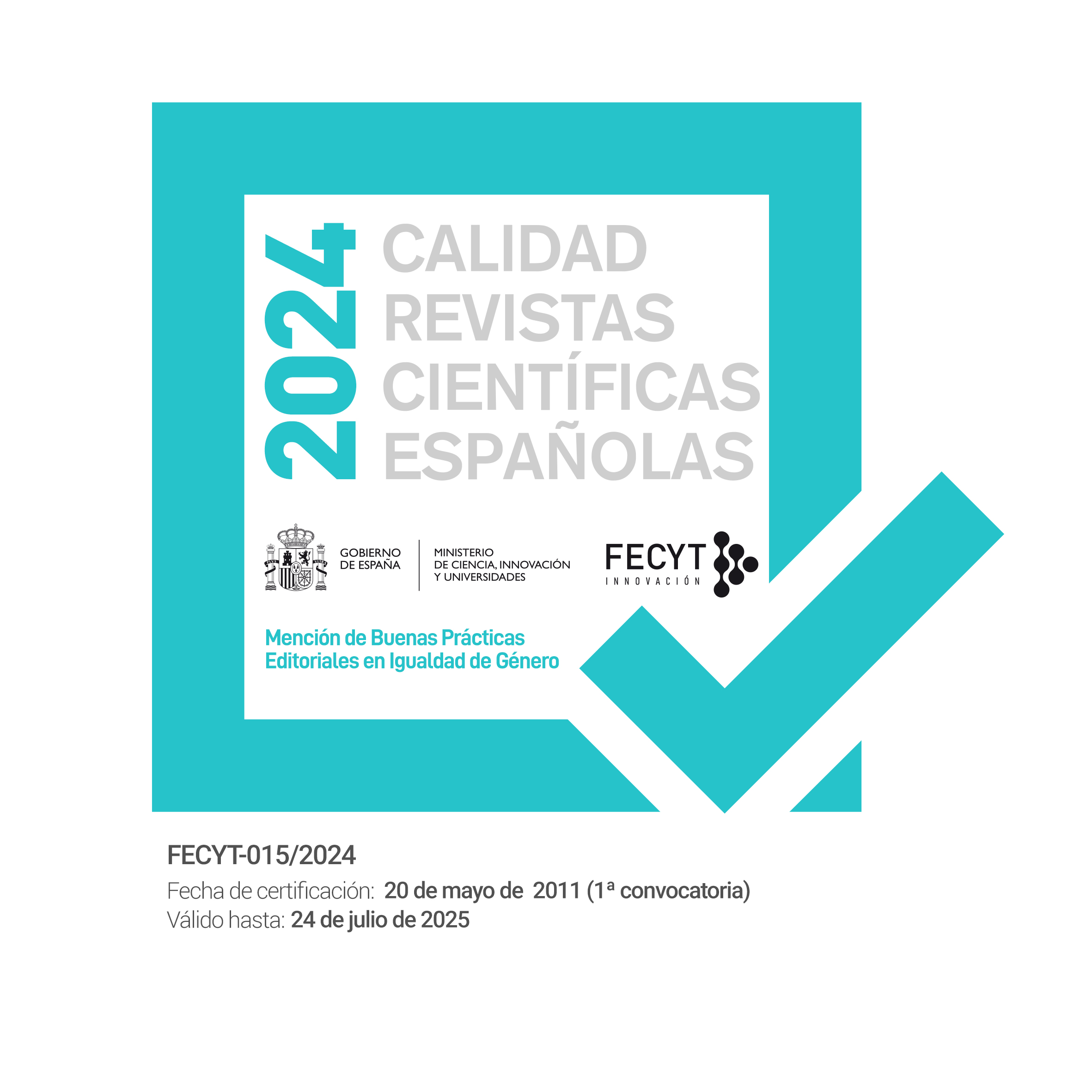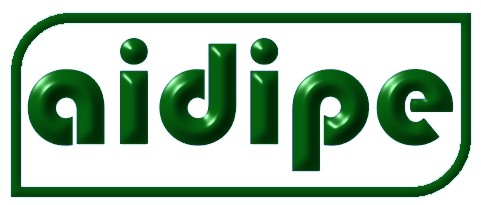دراسة التوصيات المتعلقة باستخدام الذكاء الاصطناعي بنزاهة من منظور التعليم والتعلم
DOI:
https://doi.org/10.30827/relieve.v29i2.29295الكلمات المفتاحية:
الذكاء الاصطناعي، الذكاء الاصطناعي التوليدي (GenAI)، النماذج اللغوية الكبيرة، النزاهة الأكاديمية، منحة التدريس والتعلم، منهج النظمالملخص
سمحت التطورات الجديدة في مجال الذكاء الاصطناعي (AI) بتطوير الذكاء الاصطناعي التوليدي (GenAI), القادر على إنشاء نصوص مشابهة لتلك التي يمكن للبشر إنتاجها. ونتيجة لذلك, ظهرت بسرعة مخاوف المعلمين في قطاع التعليم العالي. وقد تناولت العديد من المنظمات والخبراء هذه المخاوف من خلال التوصيات. في هذه الورقة المفاهيمية, نعتمد على النموذج المتكامل للنزاهة الأكاديمية من خلال عدسة التدريس والتعلم لفحص وتحفيز المناقشة من إحدى عشرة ورقة تركز على استخدام GenAI بنزاهة. لقد حددنا التوصيات المناسبة للمستويات الفردية (الجزئية) ,والإدارات/البرامج (المتوسطة), والمؤسسية (الكلية), والمستويات المشتركة بين المؤسسات/الوطنية/الدولية (الضخمة) فيما يتعلق بعنصرين أساسيين للنموذج: "المهنية عالية التأثير" التعلم للأفراد والمجموعات" و"القيادة والثقافات الصغيرة على المستوى المحلي".وكانت الاقتراحات حول العنصر الأساسي "المنح الدراسية والبحث والاستقصاء" مفقودة على المستويين الجزئي والمتوسط; وبالمثل, كانت التوصيات المتعلقة بالعنصر الأساسي "مساحات التعلم وطرق التدريس والتكنولوجيات" غائبة أيضًا على المستويات المتوسطة والكلي والضخمة. نحن ندرك أن هذه التوصيات تركز على التعلم، وتشرك مختلف أصحاب المصلحة, وتتجاوز سلوك الطلاب, وهو ما يتوافق مع الأساليب الحالية للنزاهة الأكاديمية. ومع ذلك, هناك بعض الثغرات تحتاج إلى مزيد من الاستكشاف. نحن نسلط الضوء على الحاجة إلى تطوير إرشادات وموارد أكثر تحديدًا وعملية لأصحاب المصلحة في مجال التعليم حول قضايا GenAI المتعلقة بالنزاهة الأكاديمية, واستكشاف أفضل السبل لدعم الشبكات والقادة في التعليم العالي فيتهيئة الظروف للاستخدام الأخلاقي لـ GenAI, والتأكيد على الحاجة إلى عدسة العدالة والتنوع والشمول في GenAI
التنزيلات
المراجع
Anson, C. M. (2022). AI-based text generation and the social construction of “fraudulent authorship”: A revisitation. Composition Studies, 50(1), 37-46.
Australian Academic Integrity Network (AAIN). (2023). AAIN generative artificial intelligence guidelines. https://www.teqsa.gov.au/sites/default/files/2023-04/aain-generative-ai-guidelines.pdf
Bearman, M., & Luckin, R. (2020). Preparing university assessment for a world with AI: Tasks for human intelligence. In M. Bearman, P. Dawson, R. Ajjawi, J. Tai & D. Boud (Eds.), Re-imagining university assessment in a digital world (pp. 49-63). Springer International Publishing. https://doi.org/https://doi.org/10.1007/978-3-030-41956-1
Bertram Gallant, T. (2008). Academic integrity in the twenty-first century: A teaching and learning imperative. Jossey-Bass.
Bertram Gallant, T. (2016). Systems approach to going forward. In T. Bretag (Ed.), Handbook of academic integrity (1st ed., pp. 975–977). Springer. https://doi.org/10.1007/978-981-287-098-8
Brake, J. (2022). Education in the world of ChatGPT. The Absent-Minded Professor https://joshbrake.substack.com/p/education-in-the-world-of-chatgpt?utm_source=direct&utm_campaign=post&utm_medium=web
Bretag, T. (2013). Short-cut students: Fostering academic integrity in students. In Transparency International, Global Corruption Report: Education. https://doi.org/10.4324/9780203109816
Bretag, T. (2016). Defining academic integrity: International perspectives - Introduction. In T. Bretag (Ed.), Handbook of academic integrity (1st ed., pp. 3–6). Springer. https://doi.org/10.1007/978-981-287-098-8
Bronfenbrenner, U. (1976). The experimental ecology of education. Educational Researcher, 5(9), 5-15. https://doi.org/10.2307/1174755.
Boyer, E. L. (1990). Scholarship reconsidered: Priorities of the professoriate. The Carnegie Foundation for the Advancement of Teaching. https://files.eric.ed.gov/fulltext/ED326149.pdf
Canadian Center for Cybersecurity. (2023). Generative artificial intelligence (AI) - ITSAP.00.041. Government of Canada. https://www.cyber.gc.ca/en/guidance/generative-artificial-intelligence-ai-itsap00041
Delisio, L. A., & Butaky, C. A. (2019). UDL and assistive technology: Utilizing technology beyond mere accessibility. In W. W. Murawski & K. L. Scott (Eds.), What really works with Universal Design for Learning (pp. 157-172). Corwin.
Dignum, V. (2021). The role and challenges of education for responsible AI. London Review of Education, 19(1), 1-11. https://doi.org/10.14324/LRE.19.1.01
Eaton, S. E. (2020a). Understanding academic integrity from a teaching and learning perspective: Engaging with the 4M framework. http://hdl.handle.net/1880/112435
Eaton, S. E. (2020b). Academic integrity: A systems approach to address contract cheating / Integridad Académica: Un enfoque de sistemas para enfrentar la compraventa de trabajo académico [Conference Paper]. Eighth Congress on Academic Integrity, Monterrey, Mexico [online]. https://prism.ucalgary.ca/handle/1880/112560
Eaton, S. E. (2021). Plagiarism in higher education: Tackling tough topics in academic integrity. ABC-CLIO. https://doi.org/10.5040/9798400697142
Eaton, S.E. (2023a). A comprehensive academic integrity (CAI) framework: An overview. University of Calgary. https://prism.ucalgary.ca/handle/1880/116060
Eaton, S. E. (2023b, September 28). Del plagio al posplagio: escribiendo el futuro de la integridad académica en la era de la inteligencia artificial [Conference presentation]. Décimo Primer Congreso de Integridad Académica, Monterrey, México.
Eaton, S. E. (2023c). Six tenets of postplagiarism. Learning, Teaching and Leadership. https://drsaraheaton.wordpress.com/2023/02/25/6-tenets-of-postplagiarism-writing-in-the-age-of-artificial-intelligence/
Eke, D.O. (2023). ChatGPT and the rise of generative AI: Threat to academic integrity? Journal of Responsible Technology, 13. https://doi.org/10.1016/j.jrt.2023.100060.
Emenike, M. E. & Emenike, B. U. (2023). Was this title generated by ChatGPT? Considerations for artificial intelligence text-generation software programs for chemists and chemistry educators. Journal of Chemical Education, 100(4). https://doi.org/10.1021/acs.jchemed.3c00063
European Commission. (2022). Ethical guidelines on the use of artificial intelligence (AI) and data in teaching and learning for educators. https://op.europa.eu/en/publication-detail/-/publication/d81a0d54-5348-11ed-92ed-01aa75ed71a1/language-en
Felten, P. (2013). Principles of good practice in SoTL. Teaching and Learning Inquiry, 1(1), 121–125. https://doi.org/10.20343/teachlearninqu.1.1.121
Foltýnek, T., Bjelobaba, S., Glendinning, I, Khan, Z.R., Santos, R. Pavletic, P., & Kravjar, J. (2023). ENAI Recommendations on the ethical use of Artificial Intelligence in Education. International Journal for Academic Integrity, 19(12). https://doi.org/10.1007/s40979-023-00133-4
Fyfe, P. (2022). How to cheat on your final paper: Assigning AI for student writing. AI & Society. https://link.springer.com/article/10.1007/s00146-022-01397-z
Hannah, S. T., & Lester, P. B. (2009). A multilevel approach to building and leading learning organizations. Leadership Quarterly, 20(1), 34–48. https://doi.org/10.1016/j.leaqua.2008.11.003
Hemsley, B., Power, E., & Given, F. (January 18, 2023). Will AI tech like ChatGPT improve inclusion for people with communication disability. The Conversation. https://theconversation.com/will-ai-tech-like-chatgpt-improve-inclusion-for-people-with-communication-disability-196481
Hubball, H., & Clarke, A. (2010). Diverse methodological approaches and considerations for SoTL in higher education. The Canadian Journal for the Scholarship of Teaching and Learning, 1(1). https://doi.org/10.5206/cjsotl-rcacea.2010.1.2
Hubball, H., Pearson, M. L., & Clarke, A. (2013). SoTL inquiry in broader curricular and institutional contexts: Theoretical underpinnings and emerging trends. Teaching and Learning Inquiry, 1(1), 41–57. https://doi.org/10.2979/teachlearninqu.1.1.41
Hutchings, P., Huber, M. T., & Ciccone, A. (2011). Why the scholarship of teaching and learning matters today. In P. Hutchings, M. T. Huber, & A., Ciccone (Eds.), The scholarship of teaching and learning reconsidered: Institutional integration and impact (pp. 1–23). Jossey-Bass.
ICAI (2021). The Fundamental Values of Academic Integrity. https://academicintegrity.org/resources/fundamental-values
Illia, L., Colleoni, E., & Zyglidopoulos, S. (2022). Ethical implications of text generation in the age of artificial intelligence. Business Ethics, the Environment & Responsibility, 32(1), 201-210. https://doi.org/10.1111/beer.12479.
Kenny, N., Watson, G. P. L., & Desmarais, S. (2016). Building sustained action: Supporting an institutional practice of SoTL at the University of Guelph. New Directions for Teaching and Learning, 146, 87–94. https://doi.org/10.1002/tl.20191
Kenny, N., Popovic, C., McSweeney, J., Knorr, K., Hoessler, C., Hall, S., Fujita, N., & El Khoury, E. (2017). Drawing on the principles of SoTL to illuminate a path forward for the scholarship of educational development. The Canadian Journal for the Scholarship of Teaching and Learning, 8(2). https://doi.org/10.5206/cjsotl-rcacea.2017.2.10
Kenny, N., & Eaton, S. E. (2022). Academic integrity through a SoTL lens and 4M framework: An institutional self-study. In S.E Eaton & J. Christensen Hughes (Eds.), Academic integrity in Canada: An enduring and essential challenge. Springer. https://link.springer.com/book/10.1007/978-3-030-83255-1
Khan, Z. R. (2023). Artificial intelligence content generators in education for schools and universities: A good practice guide, European Network for Academic Integrity Working Group Centre for Academic Integrity in the UAE. University of Wollongong in Dubai. https://academicintegrity-uae.com/category/faculty- resources/
Kreber, C. (2002). Controversy and consensus on the scholarship of teaching. Studies in Higher Education, 27(2), 151–167. https://doi.org/10.1080/03075070220119995
Kreber, C. (2013). The transformative potential of the scholarship of teaching. Teaching and Learning Inquiry, 1(1), 5–18. https://doi.org/10.20343/teachlearninqu.1.1.5
Kumar, R., Mindzak, M., Eaton, S. E., & Morrison, R. (May 17, 2022). AI & AI: Exploring the contemporary intersections of artificial intelligence and academic integrity [Conference Session]. Canadian Society for the Study of Higher Education Annual Conference [Online]. http://hdl.handle.net/1880/114647
Kumar, R., Eaton, S. E., Mindzak, M. & Morrison, R. (2023). Academic integrity and artificial intelligence: An overview. In S. E. Eaton (Ed.), Handbook of academic integrity (2nd edition). Springer. https://doi.org/10.1007/978-981-287-079-7_153-1
Lancaster, T. (2023). Artificial intelligence, text generation tools and ChatGPT – does digital watermarking offer a solution?” International Journal for Educational Integrity, 19(1). https://doi.org/10.1007/s40979-023-00131-6
Lesage, J., Brennan, R., Eaton, S. E., Moya, B., McDermott, B., Wiens, J., & Herrero, K. (2023). Exploring natural language processing in mechanical engineering education: Implications for academic integrity. International Journal of Mechanical Engineering Education. https://doi.org/10.1177/03064190231166665
Lim, W. M., Gunasekara, A., Pallant, J. L., Pallant, J. I., & Pechenkina, E. (2023). Generative AI and the future of education: Ragnarök or reformation? A paradoxical perspective from management educators. The International Journal of Management Education, 21(2). https://doi.org/10.1016/j.ijme.2023.100790
Martensson, K., & Roxa, T. (2016). Leadership at a local level – Enhancing educational development. Educational Management Administration and Leadership, 44(2), 247–262. https://doi.org/10.1177/1741143214549977
Miller-Young, J., & Yeo, M. (2015). Conceptualizing and communicating SoTL: A framework for the field. Teaching and Learning Inquiry, 3(2), 37–53. https://doi.org/10.20343/teachlearninqu.3.2.37
Miller-Young, J., Anderson, C., Kiceniuk, D., Mooney, J., Riddell, J., Schmidt Hanbidge, A., Ward, V., Wideman, M., & Chick, N. (2017). Leading Up in the Scholarship of Teaching and Learning. The Canadian Journal for the Scholarship of Teaching and Learning, 8(2). https://doi.org/10.5206/cjsotl-rcacea.2017.2.4
Mills, A. (2023). What to do about AI text generators. https://docs.google.com/presentation/d/1P5nSOm1g3CvsoPEga4fSnzjMiLtGg7Bf/mobilepresent?slide=id.p2
Mindzak, M. (2020, February 17). What happens when a machine can write as well as an academic? University Affairs. https://www.universityaffairs.ca/opinion/in-my-opinion/what-happens-when-a-machine-can-write-as-well-as-an-academic/
Munoko, I., Brown-Liburd, H. L., & Vasarhely, M. (2020). The ethical implications of using artificial intelligence in auditing. Journal of Business Ethics, (167), 209-234. https://doi.org/10.1007/s10551-019-04407-1
National Academic Integrity Network (NAIN). (2023). Generative artificial intelligence: Guidelines for educators. https://www.qqi.ie/sites/default/files/2023-09/NAIN%20Generative%20AI%20Guidelines%20for%20Educators%202023.pdf
O’Brien, M. (2008). Navigating the SoTL landscape: A compass, map and some tools for getting started. International Journal for the Scholarship of Teaching and Learning, 2(2), Article 15. https://doi.org/10.20429/ijsotl.2008.020215
Ouyang, F., Zhen, L., & Jiao, P. (2022). Artificial intelligence in online higher education: A systematic review of empirical research from 2011 to 2020. Education and Information Technologies (27), 7893-7925. https://doi.org/10.1007/s10639-022-10925-9
Peres, R., Schreier, M., Schweidel, D., & Sorescu, A. (2023). On ChatGPT and beyond: How generative artificial intelligence may affect research, teaching, and practice. International Journal of Research in Marketing 40(2), 269-275. https://doi.org/10.1016/j.ijresmar.2023.03.001
Perkins, M. (2023). Academic integrity considerations of AI Large Language Models in the post-pandemic era: ChatGPT and beyond. Journal of University Teaching and Learning Practice, 20(2). https://doi.org/10.53761/1.20.02.07
Poole, G., & Simmons, N. (2013). Contributions of the scholarship of teaching and learning to quality enhancement in Canada. In R. Land & G. Gordon (Eds.), Enhancing quality in higher education international perspectives (1st ed., pp. 278-298). Routledge.
Roe, J., Renandya, W., Jacobs, G. (2023). A review of AI-Powered writing tools and their implications for academic integrity in the language classroom. Journal of English and Applied Linguistics, 2(1). https://doi.org/10.59588/2961-3094.1035
Roxå, T., & Mårtensson, K. (2012). How effects from teacher-training of academic teachers propagate into the meso level and beyond. In E. Simon & G. Pleschová (Eds.), Teacher development in higher education: Existing programs, program impact, and future trends. Routledge. https://doi.org/10.4324/9780203096826
Roxå, T., & Mårtensson, K. (2015). Microcultures and informal learning: a heuristic guiding analysis of conditions for informal learning in local higher education workplaces. International Journal for Academic Development, 20(2), 193–205. https://doi.org/10.1080/1360144X.2015.1029929
Sabzalieva, E., & Valentini, A. (2023). ChatGPT and Artificial Intelligence in higher education: Quick start guide. UNESCO. https://www.iesalc.unesco.org/wp-content/uploads/2023/04/ChatGPT-and-Artificial-Intelligence-in-higher-education-Quick-Start-guide_EN_FINAL.pdf
Sharples, M. (2022). Automated essay writing: An AIED opinion. International Journal of Artificial Intelligence in Education, 32, 1119-1126. https://doi.org/10.1007/s40593-022-00300-7
Simmons, N. (2016). Synthesizing SoTL institutional initiatives toward national Impact. New Directions for Teaching and Learning, 146, 95–102. https://doi.org/10.1002/tl.20192
Simmons, N., & Poole, G. (2016). The history of SoTL in Canada: Answering calls for action. New Directions for Teaching and Learning, 146, 13–22. https://doi.org/10.1002/tl.20182
Simmons, N., & Taylor, K. L. (2019). Leadership for the scholarship of teaching and learning: Understanding bridges and gaps in practice. The Canadian Journal for the Scholarship of Teaching and Learning, 10(1). https://doi.org/10.5206/cjsotl-rcacea.2019.1.7995
Stanford University (n.d.) What is AI? / Basic Questions. http://jmc.stanford.edu/artificial- intelligence/what-is-ai/index.html.
Tauginiené, L., Gaižauskaité, I., Glendinning, I., Kravjar, J., Ojsteršek, M., Ribeiro, L., Odiņeca, T., Marino, F., Cosentino, M., Sivasubramaniam, S., Foltýnek, T. Glossary for Academic Integrity. https://www.academicintegrity.eu/wp/wp-content/uploads/2023/02/EN-Glossary_revised_final_24.02.23.pdf
Taylor, K. L., Kenny, N. A., Perrault, E., Mueller, R. A., Taylor, K. L., Kenny, N. A., Perrault, E., & Mueller, R. A. (2021). Building integrated networks to develop teaching and learning: The critical role of hubs. International Journal for Academic Development, 1–13. https://doi.org/10.1080/1360144X.2021.1899931
Tertiary Education Quality and Standards Agency (TEQSA). (2017). Good practice note: Addressing contract cheating to safeguard academic integrity (Issue October). https://www.teqsa.gov.au/latest-news/publications/good-practice-note-addressing-contract-cheating-safeguard-academic
Trigwell, K. (2021). Scholarship of teaching and learning. In L. H. & D. Chalmers (Eds.), University teaching in focus: A learning-centred approach (2nd ed., pp. 286–303). Routledge. https://doi.org/10.4324/9781003008330-17
UNESCO. (2021). The ethics of artificial intelligence. https://unesdoc.unesco.org/ark:/48223/pf0000381137
UNESCO (2023). Harnessing the era of artificial intelligence in higher education. https://unesdoc.unesco.org/ark:/48223/pf0000386670
Verwood, R., & Poole, G. (2016). The role of small significant networks and leadership in the institutional embedding of SoTL. New Directions for Teaching and Learning, 146, 79–86. https://doi.org/10.1002/tl
Weber-Wulff, D., Anohina-Naumeca, A., Bjelobaba, S., Foltýnek, T., Guerrero-Dib, J., Popoola, O., Šigut, P., & Waddington, L. (2023). Testing the detection tools for AI-generated text. Computation and Language. https://arxiv.org/abs/2306.15666
Whitford, E. (2022, December 9). A computer can now write your college essay – Maybe better than you can. Forbes. https://www.forbes.com/sites/emmawhitford/2022/12/09/a-computer-can-now-write-your-college-essay---maybe-better-than-you-can/?sh=4f078e2add39
Zawacki-Richter, O., Marín, V. I., Bond, M., & Gouverneur, F. (2019). Systematic review of research on artificial intelligence applications in higher education–where are the educators? International Journal of Educational Technology in Higher Education, 16(1), 1-27. https://doi.org/10.1186/s41239-019-0171-0
Zohny, H., McMillan, J., & King, M. (2023). Ethics of generative AI. J Med Ethics, (49), 79–80. https://doi.org/10.1136/jme-2023-108909

التنزيلات
منشور
كيفية الاقتباس
إصدار
القسم
الرخصة
الحقوق الفكرية (c) 2023 RELIEVE – Electronic Journal of Educational Research and Evaluation

هذا العمل مرخص بموجب Creative Commons Attribution-NonCommercial 4.0 International License.
Los autores ceden de forma no exclusiva los derechos de explotación de los trabajos publicados a RELIEVE (a los solos efectos de favorecer la difusión de los artículos publicados:firmar contratos de difusión, de integración en bases de datos, etc.) y consienten que se distribuyan bajo la licencia de Creative Commons Reconocimiento-Uso No Comercial 4.0 International (CC-BY-NC 4.0), que permite a terceros el uso de lo publicado siempre que se mencione la autoría de la obra y la fuente de publicación, y se haga uso sin fines comerciales.
Los autores pueden llegar a otros acuerdos contractuales adicionales e independientes, para la distribución no exclusiva de la versión del trabajo publicado en esta revista (por ejemplo, incluyéndolo en un repositorio institucional o publicándolo en un libro), siempre y cuando se cite claramente que la fuente original de publicación es esta revista.
La mera remisión del artículo a RELIEVE supone la aceptación de estas condiciones.

















